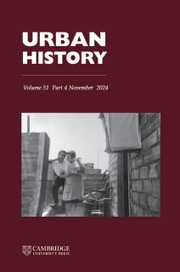No CrossRef data available.
Article contents
Review of periodical articles: Post-1800
Published online by Cambridge University Press: 01 May 1999
Abstract
In ‘Shanghailanders: the formation and identity of the British settler community in Shanghai 1843–1937’, Past and Present, 159 (1998), 161–211, Robert Bickers portrays the collective experiences and self-images of an idiosyncratic enclave of ex-patriates who preferred to be known as permanent residents rather than ‘temporary sojourners in a foreign land’. Tracing longue durée relationships between the International Settlement and Shanghai Municipal Council, Bickers has unearthed highly pertinent demographic data. By 1935 the British community numbered approximately 10,000. Between approximately 1850 and 1900 half of the total comprised unmarried males, a figure that fell to 17 per cent by the mid-1930s. Drawing on Saidian conceptualizations of otherness, Bickers probes ethnic and sexual as well as political and cultural boundaries and stereotypes. He suggests that ‘in lieu of the city-state denied them by the diplomats [Shanghailanders] . . . declaimed about their “republic”, which they “imagined” – in Benedict Anderson's term – as meritocratic, egalitarian and democratic’. As communists and nationalists confronted one another in the final battle for the heart and soul of a deeply divided land, the ex-patriate community clung desperately to a collective cultural ethos. But, within three years of Mao Zedong's triumph in 1949, the British Chamber of Commerce had been forced to dissolve itself. By 1953 a number of Shanghailanders had been denied exit visas for more than three years and in 1957 the last British firm was forced to close its doors. A few isolated individuals – quasi-prisoners or converts to the Maoist cause – lived out a shadowy existence in China's greatest industrial and maritime city. Now the settler mentalité ‘survived [only] . . . in the imagination’.
- Type
- Book Review
- Information
- Copyright
- © 1999 Cambridge University Press




